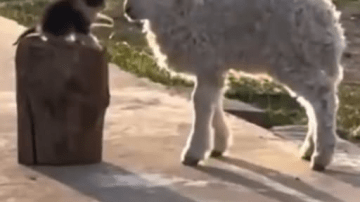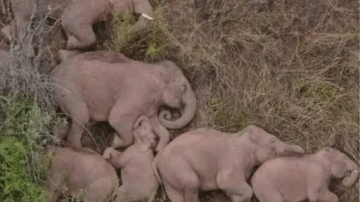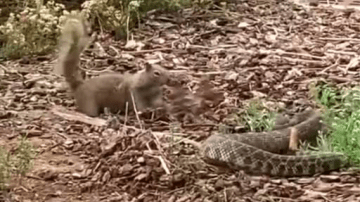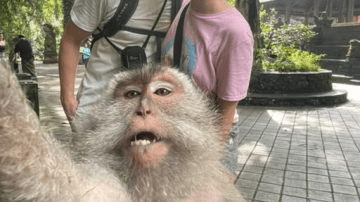The wind howls across the frozen Alaskan tundra, carrying with it the faint jingling of metal harnesses and the rhythmic panting of dogs in motion. Thirteen strong, sleek sled dogs surge forward as one, their paws thudding against the snow with perfect synchronicity. Ahead of them, the world stretches endless and white, where the horizon blurs into the sky.

This is not just a sport. It’s not merely a spectacle. It’s a tradition that has shaped human survival for more than 4,000 years.
Sled dogs are the beating heart of Alaska’s history—a living connection between ancient endurance and modern adventure. They have hauled supplies through storms, carried messages across frozen wastelands, and saved lives when no machine could. And even now, as snowmobiles and technology have replaced much of their utility, the spirit of the sled dog remains unbroken—thriving in the wild pulse of the North.
The Ancient Bond Between Man and Dog
Long before Alaska was a U.S. state, before modern tools and highways carved paths through the wilderness, native peoples like the Inupiat, Yup’ik, and Chukchi tribes relied on dogs for everything—from hunting and transportation to companionship and protection.
Archaeological evidence shows that sled dogs have been used in the Arctic for around 4,000 years, making them one of the oldest examples of human-animal teamwork in history. These weren’t just pets—they were partners, bred for strength, stamina, and loyalty.
Imagine a world of constant snow and silence, where the only warmth comes from a campfire and the bodies huddled around it. In that frozen world, dogs weren’t optional—they were the difference between life and death.
Each dog had a role:
- Lead dogs—the thinkers, responsible for guiding the team and responding to commands.
- Swing dogs—the middle team members who helped steer around turns.
- Team dogs—the muscle, pulling the sled through thick snow.
- Wheel dogs—the powerhouses closest to the sled, stabilizing it on tough terrain.
It was a system refined over millennia—proof that survival in the harshest environment depends not on dominance, but cooperation.
Thirteen Strong: A Team in Motion
Fast forward to the present day. On the outskirts of Anchorage, the air is alive with excitement. A musher stands at the ready, bundled in layers of fur and nylon, his breath visible in the cold air. In front of him, a team of thirteen Alaskan huskies trembles with anticipation.
Each dog wears a harness, their eyes bright, their bodies vibrating with energy. They bark, whine, and leap against the lines, eager to run. The musher checks each one—hands brushing along thick fur, adjusting straps, murmuring encouragement. The dogs respond to his voice more than any command.
Then, with a single shout—“Hike!”—they explode into motion.
Snow flies. The sled glides forward. The musher leans into the wind as the team powers through the white wilderness, each dog pulling not for reward, but for joy.
It’s in their blood. It’s who they are.
What Makes a Sled Dog Special
Not every dog can handle the life of a sled runner. True sled dogs are a blend of intelligence, athleticism, and spirit—each born to run hundreds of miles through snow and ice.
They thrive in temperatures that would freeze most animals. Their double coats trap heat while allowing moisture to escape, keeping them dry even in blizzards. Their paws are naturally insulated, their metabolisms fine-tuned to burn fat efficiently for energy.
| Trait | Purpose in Sled Dogs | Effect on Performance |
|---|---|---|
| Double-layer coat | Keeps them insulated from Arctic cold | Allows endurance in subzero temperatures |
| Webbed paws | Helps grip icy terrain | Prevents slipping and distributes weight on snow |
| High oxygen efficiency | Supports sustained running | Enables long-distance travel without fatigue |
| Pack instinct | Encourages cooperation | Maintains team harmony during runs |
But perhaps the most defining feature is not physical—it’s emotional.
Sled dogs are born with an innate desire to pull, to run, to move forward no matter the challenge. It’s not about competition or training—it’s about purpose. They live for the journey.
A Legacy of Heroes
The bond between humans and sled dogs was never more apparent than in one of Alaska’s most defining moments—the 1925 Serum Run to Nome.
When a deadly diphtheria outbreak struck the remote town of Nome, winter storms made air travel impossible. The only hope was to transport life-saving medicine over 700 miles of ice and snow.
More than twenty mushers and 150 sled dogs took part in the relay, braving blizzards and minus-50-degree winds. Among them was Balto, who led the final leg of the journey through near-whiteout conditions.
They made it. Against all odds, they delivered the serum and saved an entire town. That run became legend—a story of courage, endurance, and the unbreakable partnership between human and dog.
Even today, the annual Iditarod Trail Sled Dog Race commemorates that historic journey. Teams from around the world gather each March to traverse the same perilous routes, covering nearly 1,000 miles from Anchorage to Nome. It’s not just a race—it’s a tribute to the ancient bond that built Alaska.
Life in the Modern Kennel
For modern mushers, sled dogs are family. Each one has a name, a personality, and a place in the team.
In a typical kennel, dogs live in insulated huts and train daily during the colder months. They eat a high-calorie diet rich in fat and protein—sometimes up to 10,000 calories a day during peak training.
But the most important part of their routine isn’t running or eating—it’s connection. Mushers spend hours bonding with their dogs, brushing them, talking to them, and learning their quirks.
One musher described it best: “You don’t command sled dogs. You earn them. They run for you because they trust you.”
Lessons from the Trail
Every musher has a story—a moment when the wilderness tested them, and their dogs carried them through.
There are tales of blizzards so fierce that sight vanished, and only the lead dog’s instinct guided them home. Stories of frostbite, exhaustion, and near-misses with thin ice. But in every story, the theme is the same: the dogs never gave up.
That’s the heart of mushing. It’s not just about reaching the finish line—it’s about facing the wild together and discovering that courage isn’t born from strength, but from unity.
Why the World Still Needs Sled Dogs
In an age of snowmobiles, drones, and satellites, it’s easy to assume sled dogs are relics of the past. But in the most remote parts of Alaska, where engines fail and technology freezes, dogs still deliver mail, supplies, and hope.
And beyond their practical use, sled dogs represent something we can’t replicate—a spirit that connects us to nature and to history. They remind us that progress should never mean forgetting where we came from.
| Then | Now |
|---|---|
| Vital for transportation and hunting | Preserve cultural heritage and sport |
| Survival partners for indigenous tribes | Companions in training, therapy, and adventure |
| Carried medical supplies across Alaska | Symbolize endurance and teamwork |
The Call of the North
As the team of thirteen races across the Alaskan wilderness, their breath crystallizes in the air like steam. Their paws strike in rhythm, snow exploding beneath them, harnesses tight with energy.
The musher stands tall, guiding with quiet confidence, his eyes scanning the horizon. In that moment, there are no words—only the steady pulse of life moving forward through the snow.
Thousands of years of history, instinct, and partnership run through that frozen silence.
The sled dogs of Alaska are more than animals. They are storytellers, carrying the memory of generations who survived by their strength and spirit. They are a living legacy—a reminder that even in the harshest cold, warmth endures where trust and love run side by side.
Because in Alaska, when the snow falls and the wind howls, it’s not machines that answer the call. It’s the dogs—the same loyal hearts that have been running for 4,000 years, chasing not just the horizon, but the soul of the North itself.
This article honors the legacy of Alaskan sled dogs—symbols of courage, loyalty, and the timeless bond between humans and the animals who help us endure the wild.





